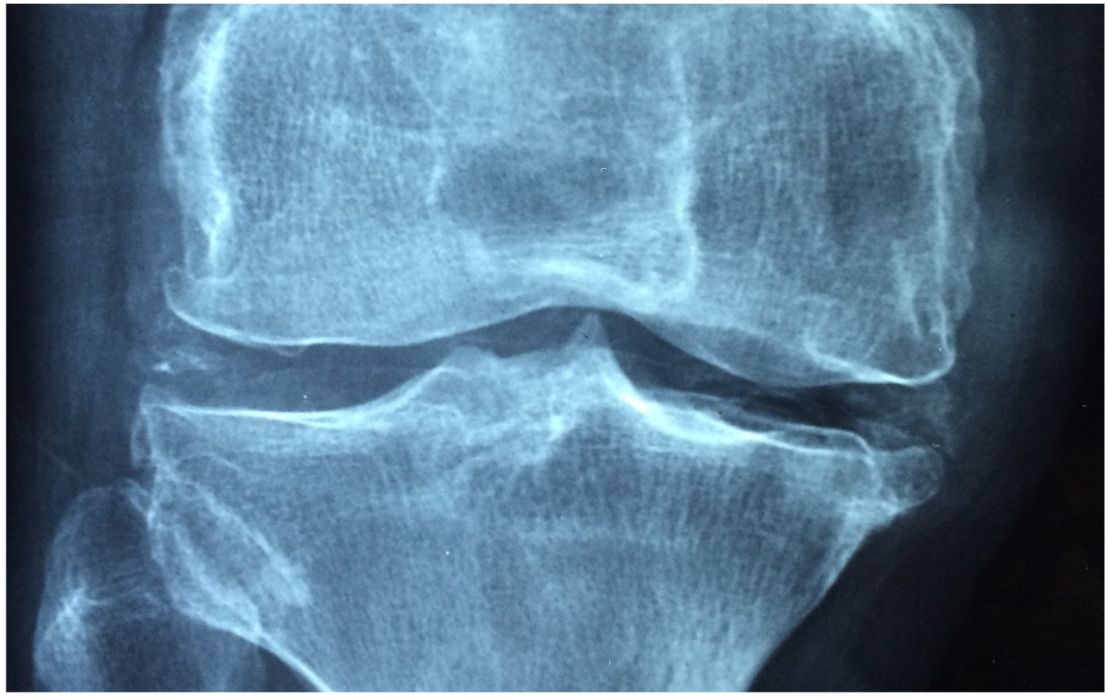Nasal congestion, a condition referred to commonly as stuffy nose, can ruin your day; in some instances, it can be life-threatening.
Which is why you need simple home remedies.
It’s impractical to visit a doctor every time you have a stuffy nose, as for some people, the condition occurs often.
Most of the remedies in this article are simple, and the ingredients recommended are easily available.
Choose a few remedies and go with them.
You need to have a couple of remedies at your fingertips to use based on the ingredients or equipment you have at home.
Check out all the remedies, and pick those that are ideal for your situation.
What is Nasal Congestion?
Nasal congestion is the condition that results when the nasal passages are blocked.
This is normally caused by a number of factors, but the most common is swelling of the lining of the nose due to inflammation of the blood vessels.
This condition is normally treated by use of a natural decongestant when you visit a doctor.
These decongestants are offered in the form of inhalers, sprays, or pills.
Usually, nasal congestion occurs as a mild annoyance that makes it difficult for you to breathe.
For most people, the condition does not bother them much, nor does it affect their day-to-day activities.
However, when left unattended, the condition can lead to complications.
Babies breathe through the nose.
When faced with nasal congestion, therefore, the condition can result in respiratory distress, especially when breastfeeding.
In older children and most adolescents, the condition is a simple annoyance.
How to Prevent Nasal Congestion?
The best way to prevent stuffy nose is to maintain good hygiene – this will keep flu and cold viruses and bacteria at bay.
This mean you clean your hands, use sanitizers, avoid contact with sick people, and clean utensils well.
For allergy-related congestion, avoid allergens such as dust, pollen grains, and smoke, among others.
Eat healthily, and use any of the remedies recommended below to prevent nasal congestion.
What Causes Nasal Congestion?
There are many probable causes of nasal congestion.
Mostly it results from bacteria or viruses when you have a flu or cold. It may also be caused by allergens such as dust and pollen grains.
Whenever there are intruders in your nose, they cause inflammation in your nasal passageways.
Swelling from an inflamed nasal lining blocks the airflow through the nostrils.
Adults will then breathe through the mouth, but babies will suffer breathing distress.
Nasal congestion can also result from the dilation of the blood vessels in the nose.
By dilating/enlarging, the blood vessels reduce airflow through the nostrils, which results in breathing difficulties.
Contrary to common belief, excess mucus does not result in nasal congestion.
Other causes of this condition include:
- Allergies
- Deviated septum
- Reaction to medication
- Rhinitis
- Sinus infection
- Pregnancy
- Nasal polyps
- Empty nose syndrome
- Gastroesophageal reflux disease
The symptoms you experience with nasal congestion are determined by the cause of the congestion. Common symptoms include:
- Pain in the forehead or under the eyes
- Breathing difficulties
Potential Problems to which Nasal Congestion Can Lead
When left untreated, nasal congestion can affect hearing and speech.
At significant levels, the congestion will interfere with sleep, causing snoring and sleep apnea.
In children, for instance, nasal congestion may result from enlarged adenoids.
In such a case, children might suffer chronic sleep apnea.
Sleep apnea will result in insufficient oxygen levels in the body, and hypoxia, both conditions that might lead to right-side heart failure.
For this condition to be resolved, the adenoids and tonsils must be removed through surgery.
The problem might reappear later in life, thanks to chronic nasal congestion.
Nasal congestion will often cause mild head and facial pain.
The condition is, at times, very uncomfortable, especially when it results from allergies and the common cold.
When to See a Doctor
While home remedies for nasal congestion will offer you a fast and inexpensive solution, sometimes they may not relieve the congestion as needed.
This is especially true if the symptoms arise from another health condition.
In such cases, you will need to seek medical treatment.
If the condition prevents you from doing your daily activities due to pain or discomfort, even after trying home remedies, see a doctor immediately.
You should also see a doctor if:
- The congestion lasts more than 10 days
- Congestion is accompanied by fever lasting more than three days
- You produce a green nasal discharge
- You suffer asthma, emphysema, or a weakened immune system
Again, if you recently had a head injury and now you have a bloody nasal discharge, you need to see a doctor at once.
How to Decongest Nose – Simple Natural Home Remedies
Drink Warm Water
Warm water or any other warm liquid will offer more than hydration to the body.
When drunk, a warm liquid will loosen the mucus in the nasal passages and in your chest, facilitating its release from the body.
Again, warm liquids moisten the throat and hydrate the body.
Warm drinks are especially therapeutic for cold and flu sufferers.
Warm water, for instance, is an easy and inexpensive option for anyone with a nasal condition.
After drinking some warm liquid, you will enjoy sustained relief from a runny nose, chilliness and tiredness, sore throat, cough, and sneezing.
The results are instant.
If you do not like the taste of warm water, try other liquids such as milk, herbal tea, coffee, and many more.
Inhale Steam
Steam has been used for thousands of years to relieve nasal congestion, to treat different facial conditions, and to remedy a number of other respiratory problems.
Steam offers an inexpensive, quick, effective, and safe solution to a congested nose.
When you inhale steam, the mucus and other secretions that cause a stuffy nose are loosened and easily released.
In addition to the steam, you can try a hot shower at least twice each day to loosen congestion in the chest, nose, and head.
You can inhale steam from soup or boiling water.
After boiling some water, you can add rosemary, thyme, lavender, eucalyptus, or mint to enhance the effectiveness of the steam.
Drape a towel on your head and lean over the bowl with hot water.
Ensure that the towel is positioned to capture as much steam as possible.
Breathe the steam for about ten minutes.
Use Salt Water to Wash Sinuses
Saline water acts as a natural decongestant to replace OTC nasal sprays.
DIY salt water at home is as effective as store-bought decongestants.
Saline water has been used consistently to relieve patients of conditions such as stuffy nose, sinusitis, and other respiratory conditions.
If your nasal congestion is a result of sinusitis, by rinsing the sinuses with salt water, you can clear the condition in a few short weeks.
To do this, dissolve at least half a teaspoon of salt/sodium chloride in a cup of distilled water.
If you do not have distilled water, boil water and then cool it. You can add a half of baking soda to enhance the effectiveness.
Use a neti pot or a plastic bottle with a thin opening to squeeze out the water into the nostrils to rinse out the sinuses.
Repeat this for a few days, and your condition will be improved.
Use a Diffuser and Essential Oils
A diffuser is handy equipment when you have a stuffy nose.
When used with some essential oils, this highly powerful combination will relieve you of stuffy nose and a blocked head.
All you need is to add select natural oils to your diffuser and leave them to waft house your nose.
You can also smell the same oils by placing them on a tissue, or adding them to your bath.
At night, add a few drops of your oil of choice to your pillow.
Some essential oils to use include eucalyptus oil, which is antiseptic, antiviral, and also a decongestant; tea tree oil for its antimicrobial and expectorant qualities; peppermint for nasal passage unblocking; thyme, basil, and rosemary, which are antiseptic; pine, lavender, and chamomile, which reduce congestion and soothe the nose.
Make a Home DIY Salve
Commercial vapor rubs are associated with a burning sensation.
Most of these rubs are petroleum-based, made of menthol and turpentine.
When used occasionally, these commercial rubs can result in skin rashes and redness.
If you have severe nasal congestion, make a simple home salve.
Besides relieving your congestion, the vapor will clear a blocked head.
You can make this salve with essential oils such as eucalyptus, shea butter, coconut oil, lavender, lemon, and tea tree oil, among others.
Whip the ingredients together to make a light, silky butter that rubs easily on the skin.
Rub the cream on your chest and on your nose. You can also rub it on your hands, and inhale it for a few minutes.
Try Home Acupressure
Sometimes the solution is as easy as pressing pressure points.
Simple acupressure involves pressing different parts of the nose bridge to relieve blockage and swelling in the nasal passages.
This will in turn increase the flow of air in your nose.
There are different ways to use acupressure to relieve nasal congestion.
First, rub your hands together to warm them, and place them at the tip of your nose.
You can also hold the joint between the index finger and the thumb and press it hard.
This reduces irritation and pain in the nose.
Another area to massage is the joint between the nose bridge and eye socket.
Other points to massage include the nostril edge, the base of your skull, the hollow point at the back of your head, and the collarbones.
By massaging each of these points for a few minutes, your nasal congestion will be cleared.
Apply Compresses to Sinuses
Hot or cold compresses offer an easy way to relieve you of nasal congestion.
Place a hot pack across the sinuses for about three minutes, and a cold pack for 30 seconds.
If you repeat this up to six times a day, you will see impressive results within a short period.
For a hot compress, heat a damp washcloth in a microwave for about 30 seconds.
Touch the washcloth to your hand to ensure it is not too hot, and then place it on your face.
For a cold compress, wrap a pack of ice with a towel, then place it on different parts of your face.
Hot and cold compresses are ideal when you have an inflammation problem.
Eat Healthy Meals
There are only a few health conditions that a good diet does not cure.
Some food items facilitate the formation of mucus, while others loosen it, making it easier to release.
When suffering from nasal congestion, avoid eggs, fish, dairy products, chocolate, processed meat, nuts, soybeans, coffee, alcohol, and soft drinks.
To relieve congestion, consider spicy food, soups, warm drinks with less sugar, fresh fruits, herbs, and vegetables.
Generally, ensure you eat a healthy, balanced meal at all times.
Diets rich in refined carbs, sodium, and meat facilitate mucus formation, while diets rich in veggies, fiber, and fruits limit it.
Elevate Your Head with Pillows at Night
Sleeping with your head raised is one way of limiting nasal congestion.
This is true when your congestion is caused by an inflamed septum.
To elevate your head, add a second pillow or choose a thick one to sleep on.
By elevating your head, any congestion issuing from the lungs is halted.
This trick also reduces coughing.
If the nasal congestion leads to tinnitus, or noises in your ears, elevation can reduce that.
If it feels uncomfortable for you to sleep on plumped-up pillows, place the pillow beneath your mattress to create a gradual slope.
While this trick might not clear the problem, it makes it easier for you to breathe at night.
Drink Apple Cider Vinegar
Apple cider vinegar provides a multitude of benefits to human health.
When drunk, apple cider vinegar will drain the sinuses and a stuffy nose.
All you need to do is add a tablespoon of apple cider vinegar in a glass of water and drink.
Repeat this two or three times a day until nasal congestion clears.
Apple cider vinegar does not taste great, and most people will prefer other remedies.
However, you can make tasty drinks by adding honey or other natural sweeteners.
Vinegar can be added to boiling water, and the steam inhaled for great results.
Always use raw apple cider vinegar.
Try Yoga
Stretching is a good way to relieve your muscles, and also your respiratory passages.
This is a remedy that most people will avoid, especially if it is to be done first thing when you wake up.
If you are wondering how to relieve nasal congestion, get into a yoga routine.
There are different poses that you can try, but only concentrate on those that open up your chest and your neck.
Try the camel pose, bridge pose, and plow, bow, and head stand poses.
These are some of the most common yoga poses, but you can do more if you are up to the task.
Drink Spicy Tomato Tea
Spicy foods are always effective in relieving nasal congestion.
Spicy foods such as chilies and pepper contain capsaicin, the chemical substance that causes a burning sensation when eaten.
This chemical is also responsible for the health benefits found in spicy foods.
First off, capsaicin has the ability to kill pain.
And spicy food irritates the mucous membranes, inflaming them and resulting in a runny nose.
A runny nose relieves congestion.
Spicy tomato tea is made by boiling a cup of tomato juice with a teaspoon of chopped garlic, a teaspoon of lemon juice, Himalayan salt, and some chili sauce.
Drink the tea when hot at least twice a day until the condition clears.
Use a Humidifier
Humidifiers offer relief by providing you with extra moisture to thin mucus and ease congestion.
Humidifiers have the same effect as holding your face over a bowl of boiling water, but a humidifier offers you humidity any time of the day.
Humidifiers produce either cool or warm mist.
A cool mist is better, as it is cost-effective and safe for children and pets.
A cool mist humidifier uses less energy than a warm mist humidifier.
For the humidifier to be effective, ensure that it is clean and free of mold and bacteria.
While adding water to the humidifier, you can add oils such as eucalyptus or tea tree oil.
Use Raw Onion
Onion clears your nasal passages by removing allergens that might be causing inflammation.
The smell of onion will relieve you of the symptoms that come with congestion due to allergies.
Onion acts a decongestant, removing any sputum that clogs your nasal passages.
It is also an anti-inflammatory agent that reduces the swelling of blood vessels in your nasal cavities.
Onion also has antiseptic and antibacterial properties.
When used right, it prevents infections that might cause stuffy nose.
Onion can be eaten in salads, or can be cut into half and smelled for about 5 minutes.
By doing this a few times each day, you will clear the congestion.
Smelling onion every day will offer instant relief.
However, you should not overdo it, as you might exacerbate the condition in the process.
Use Honey in Tea and Other Drinks
Honey is great in drinks.
You can add it to any of the remedies described above, or you can take it alone to get the maximum benefits.
Honey is antibacterial, antiviral, and antiseptic.
When ingested, honey will treat the sinusitis-causing bacteria.
Honey is also naturally anti-inflammatory, offering you instant inflammation relief.
A drink with honey will soothe your throat by reducing coughing.
Manuka honey, from the Mediterranean, is recognized for its benefits.
You can use it to boost your body’s immunity and fight infections that might result in a stuffy nose.
To take Manuka honey, add a teaspoon to your tea, stir, and drink.
You can also add the honey to lukewarm water and drink the water.
Alternatively, mix a quarter-teaspoon baking soda, non-iodized sea salt, and Manuka honey.
Add eight drops of this mixture into each nostril every day until the condition is cleared.
Honey can also be mixed with herbs and spices.
Honey will sweeten the spices and herbs, while offering great benefits.
Dos and Don’ts
Dos:
Most nasal congestion home remedies involve eating spicy food, inhaling steam, or consuming natural oils, and herbs.
You should ensure that you drink plenty of fluids, whether warm or cold, to stay hydrated all day.
You need to maintain high standards of hygiene to stay safe from the common cold and flu bacteria and viruses.
Bacteria and viruses are usually found on doorknobs, pens, and various other surfaces.
By washing your hands often, you stay safe from these microorganisms.
Undertake a moderate workout to boost your immune system.
Don’ts:
Avoid smoking and excess alcohol, especially when you have nasal congestion.
Avoid places with environmental pollution, and swimming in unclean places.
Cold foods and drinks with preservatives should be avoided, as they have a higher chance of harboring bacteria.
In cases of severe nasal congestion, avoid air travel.
Refrain from sweetened food items, or those with refined carbohydrates.
Conclusion
You will find many answers when researching how to decongest your nose.
You should ensure that you only use natural remedies that will not exacerbate, but help the situation.
Most of the ingredients for these natural home remedies are easily accessible, and the preparation methods are easy.
You should start with the easiest remedies and proceed to the seemingly more complicated and less comfortable ones.
The best way, however, is to try different remedies at the same time.
For instance, you can steam, take tea with honey, and do a few yoga stretches each day.
This way, you will clear the congestion faster.
However, if your condition does not improve, try medical sprays, or see a doctor.
When wondering how to relieve nasal congestion or how to choose the best natural remedy from the 15 offered, consider the ingredients you already have in your kitchen.
Other ingredients you may use include garlic, ginger, basil, cayenne pepper, turmeric, Fenugreek, and mustard oil.








